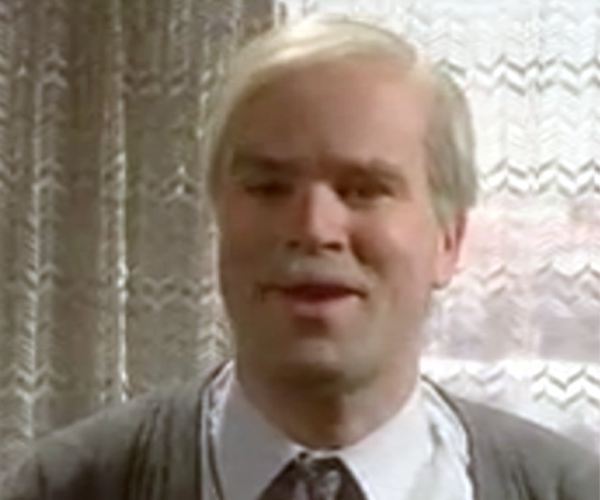FURIOUS Still Game star Greg Hemphill today revealed the BBC had scrapped his new sitcom.
Hemphill, 42, said network bosses in England had vetoed alternative comedy Blue Haven – despite BBC Scotland backing the project.
A fuming Hemphill called the BBC’s decision “unbelievable” and suggested he might upload the pilot to YouTube.

The pilot for Blue Haven – which starred Hemphill alongside fellow Scot comedian Donald McLeary – was shot in April.
The alternative comedy follows the life of a cursed sea creature after it arrives in a small tight-knit Scottish community.
But news of the BBC’s refusal to make the show, came to a shock to the TV star, who wrote on Twitter: “So BBC Scotland want to make my sitcom, but BBC Network aren’t interested. So it doesn’t get made. Which is a shame cause it’s really good.
“I might upload the pilot if it doesn’t get me in too much trouble.”
Scots writer, Mark Millar, who wrote the hit movie Kick Ass, waded into the row, telling the Scots star: “That’s the craziest thing I’ve ever heard. That pilot was brilliant. Can’t it just get made up here?”
Hemphill replied: “No because every show BBC Scotland make has to have ‘network transferability’. So it has to be supported down there.”
Mr Millar continued to show his disgust at the BBC’s decision, when he tweeted: “The fact that London said no to this and yes to BBC3’s VERY EXISTENCE makes me sick to my stomach.”
Hemphill replied: “Different world down there, fella! Unbelievable.”
Another Scottish writer, Kevin Williamson, questioned the BBC’s decision, asking Hemphill: “Seriously? Is this standard practice for BBC Scotland to defer to network before commissioning?
To Hemphill replied: “It didn’t use to be, but it is now.”
Sickening
Greg McHugh, star of Gary: Tank Commander today tweeted his support to Hemphill, writing: “Sickening. Sorry to hear that Greg. It’s the number of network far misses that’s the most infuriating thing.
Away from Twitter, celebrated Scots writer and creator of Rab C. Nesbitt, Ian Pattison, also criticised decision making at the BBC.
He said: “The decision making process of the BBC can be labyrinthine. If it’s funny then why shouldn’t it go on TV and be broadcast down south?
“Choosing a television show is not an exact science and when someone has a great track record like Greg then you’d expect those in charge to want to snap it up and do all they can with it – surely that’s obvious.
“It happened to Burnistoun and to Gary: Tank Commander but thankfully things worked out for them, albeit eventually.
“There might be initial hiccups to his show but I wish Greg all the best.”
The outburst is the latest in a series of rows between Hemphill and the BBC that have raged for at least eight years.
Last year he slammed the BBC decision to only show his comedy sketch show Burnistoun in Scotland and not south of the border.
He took to Twitter to call the television chiefs “arseholes” following the incident.
Hemphill used the same term in 2004 when the Corporation refused to show sitcom Jack and Victor across the network.
He said at the time: “I think the BBC are making rather an arse of it to be honest. I’m not talking about the people who commission the show. I’m talking about those arseholes down south.”
Hemphill’s surreal comedy follows a cursed sea creature, with a fish head, who has arrived from the mysterious Blue Haven and is trying to fit into Scottish community life.
But residents, including local church goers plot to have the unfortunate monster killed.
The show was directed by Scots director Simon Hynd for TV studios Kudos/Brown Eyed Boy and BBC Scotland.
Other shows that have had problems breaking out of the Scotland-only mould include The Limmy Show and Gary: Tank Commander, which was shown in Australia but not England.
The Limmy Show’s creator Brian Limond was left dangling by Beeb bosses after the decision to put his show on the international platform was never reached.
But Ewan Angus, commissioning editor at BBC Scotland and the executive producer for Still Game, reckons Scottish shows should be given more of a platform as Scottish audiences have to put up with shows from other nations.
Speaking previously he said: “I think the appeal is the jokes and the situations, which have universal appeal. There are not a lot of specific references that an audience outside of Scotland wouldn’t get.
“Viewers in Scotland get subjected to Cockney accents and indeed look at all the American films that are imported. It’s time we got some more Scottish accents out there. The important thing is that it’s funny and there is a broad.”
No-one was available for comment today from the BBC.